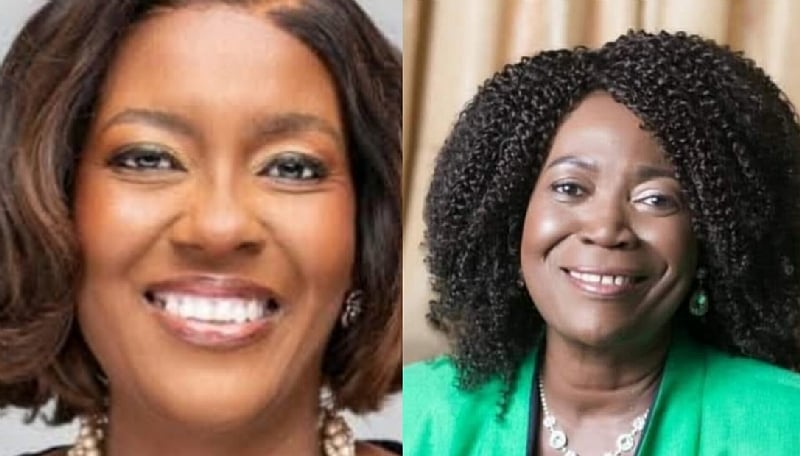Della Sowah, former Member of Parliament for Kpando, has launched a scathing attack on the Ghana Bar Association (GBA), accusing the organization of hypocrisy and partisan bias in its recent criticism of President Mahama’s suspension of Chief Justice Gertrude Torkornoo. Sowah’s critique stems from the GBA’s press release demanding the reversal of the suspension, a move they argue is constitutionally flawed. The former MP contends that the GBA’s stance is inconsistent with its previous silence on similar matters during the tenure of the New Patriotic Party (NPP) government. She specifically highlighted the removal of Charlotte Osei as Electoral Commission Chair under the NPP, questioning the GBA’s absence of protest at the time. This apparent selectivity, in Sowah’s view, exposes the GBA’s underlying political motivations, painting a picture of an organization that speaks out only when the NDC is in power.
Sowah underscores the GBA’s alleged double standard by pointing to a prior press release, issued just days before the current controversy, in which the association raised no constitutional concerns regarding the President’s initial actions related to the Chief Justice’s suspension. The sudden shift in the GBA’s position, she argues, raises serious questions about its motivations and independence. She questions whether the GBA is genuinely serving the interests of Ghana or acting as a proxy for a particular political party, and demands to know who, if anyone, is influencing their pronouncements. This rapid change in stance, from apparent acceptance to outright condemnation, has fueled Sowah’s accusations of political maneuvering and undermined the GBA’s credibility in her eyes.
Further intensifying her criticism, Sowah challenges the GBA’s authority to interpret the law. She questions the association’s self-proclaimed ability to declare the President’s decision unconstitutional, arguing that such power rests solely with the Supreme Court. By presuming to interpret the constitutionality of the President’s actions, Sowah argues that the GBA is overstepping its bounds and effectively usurping the role of the judiciary. This, she believes, is a dangerous precedent that undermines the separation of powers and erodes the rule of law.
Sowah’s central argument revolves around the perceived partisan bias of the GBA, which she believes has compromised the association’s credibility. She urges the GBA to abandon its apparent anti-NDC stance, warning that continued partisanship will further diminish its standing and influence on national matters. The association, she contends, should prioritize upholding the rule of law and defending the constitution impartially, rather than acting as a political player. This perceived bias, according to Sowah, not only undermines the GBA’s credibility but also jeopardizes the association’s important role in safeguarding the integrity of the legal profession.
The former MP asserts that the GBA’s actions risk misleading its members, particularly young lawyers, by presenting biased interpretations of the Constitution. She emphasizes the importance of objective legal analysis and warns against using the law as a tool to advance partisan political agendas. This politicization of legal interpretation, Sowah argues, is detrimental to the legal profession and ultimately undermines the public’s trust in both the GBA and the legal system as a whole. She appeals to the GBA to act as a neutral arbiter of legal principles, rather than promoting a specific political narrative.
Finally, Sowah expresses her confidence in President Mahama’s commitment to upholding the constitution and adhering to due process throughout the proceedings related to the Chief Justice’s suspension. She assures the public that the President will act within the confines of the law, despite the GBA’s criticisms. This assurance serves as a counterpoint to the GBA’s accusations, framing the President’s actions as lawful and constitutionally sound, and implicitly criticizing the GBA’s understanding of the law. Sowah’s statement, therefore, is not just a critique of the GBA but also a defense of the President’s actions, positioning the two entities in direct opposition on this contentious issue.














